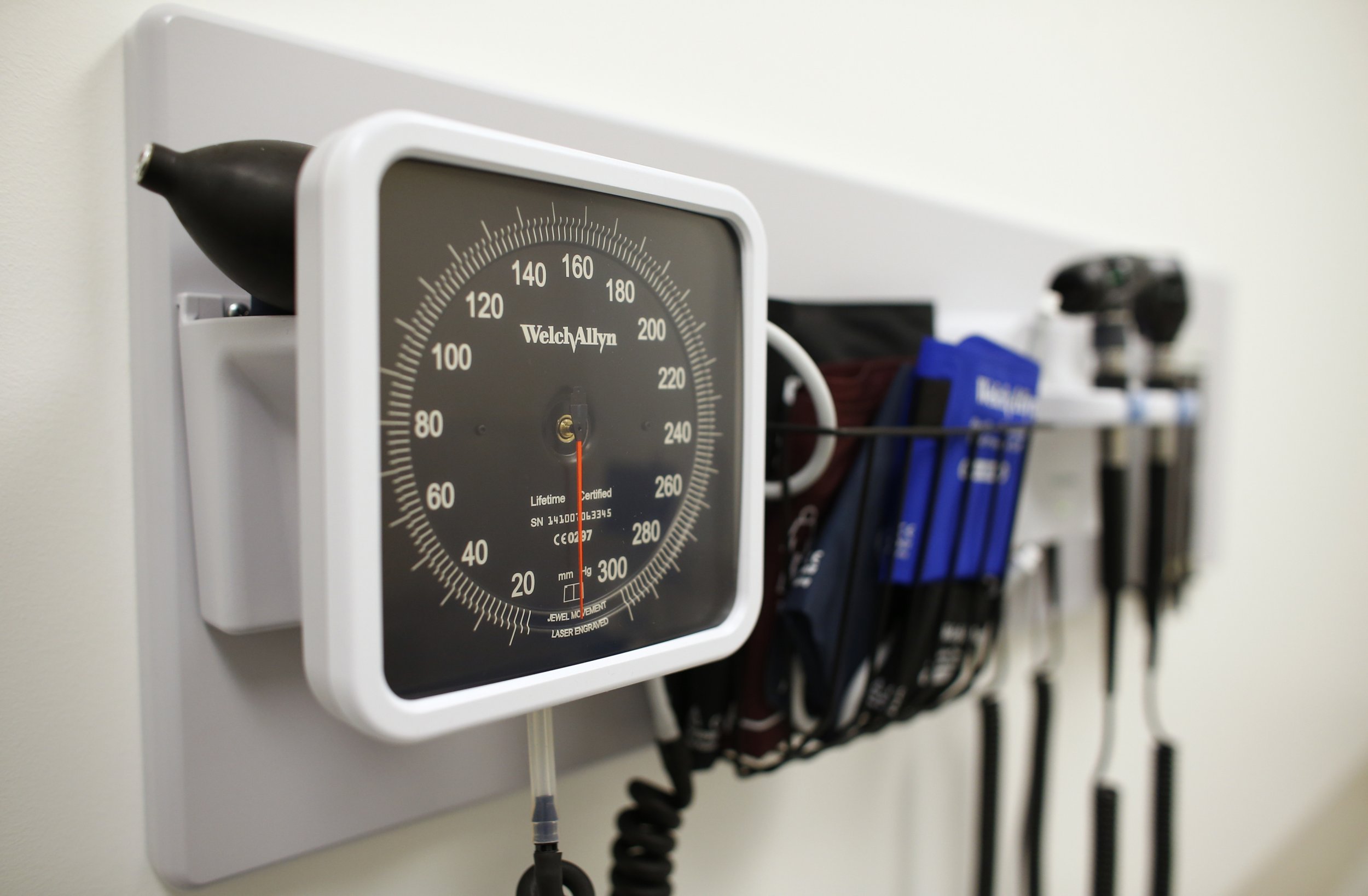
Preliminary findings of large-scale study supported by the National Institutes of Health (NIH) recommends physicians not wait—and take a more aggressive approach—in treating high blood pressure in certain patient populations. The Systolic Blood Pressure Intervention Trial (SPRINT) finds swifter treatment for hypertension in adults 50 years and older lowered risk of heart attack, heart failure and stroke by almost a third and the risk for death by almost a quarter. The NIH said on Friday they stopped the trial earlier than planned in order to release the notable findings.
This treatment approach involved adjusting blood pressure medication to achieve a target systolic pressure of 120 millimeters of mercury (mm Hg) rather than 140 mm Hg, which has traditionally been recommended by physicians. This measurement refers to the height at which the blood flow through vessels push a column of mercury when a physician takes a patient's blood pressure. It's the top number on a blood pressure reading. (The lower number—diastolic pressure—is a measurement of pressure in the arteries between heartbeats.)
According to the American Heart Association, a systolic blood pressure reading of less than 120 mm Hg is considered in the normal range; 120 to 139 is categorized as pre-hypertension; 140 to 159 is stage 1 high blood pressure; 160 or higher is stage 2 high blood pressure; and higher than 180 requires emergency care. However, some physicians believe blood pressure ranges can differ depending on a person's age and their overall general health, and it also may naturally fluctuate throughout the day and in response to external stressors. In other words, a person with otherwise good blood pressure may teeter over 120 during a bad week at work. High blood pressure is also be a side effect of other medications, such as birth control pills.
For the SPRINT study, which began in the fall of 2009, researchers divided patients at random into two groups with different mm Hg goals. All patients enrolled in the study had an average baseline systolic blood pressure of 130 mm Hg or higher. One group received doses of medication to achieve a target of 140 mm Hg, and the other group was medicated to a target goal of 120 mm Hg. Participants in the higher blood pressure group received an average of two medications versus people in the lower blood pressure group who took an average of three different medications. However, the preliminary findings of the study don't say which drugs turned out to be most effective for patients.
The study's focus on medications, rather than lifestyle, may raise some concerns since patients can experience some serious side effects from long-term use of many of these drugs. There are dozens of drugs prescribed for high blood pressure that work in many different ways. Since high blood pressure often goes hand-in-hand with other health conditions, a physician typically selects a drug that will lower blood pressure but also help a patient manage another health problem such as chest pain (angina) or diabetes. Even still, all physicians treating patients with high blood pressure recommend lifestyle changes such as eating a healthy diet, staying active and reducing stress.
The researchers will release more detailed findings of the SPRINT study in 2017. The study, the largest to date on systolic blood pressure, involved more than 9,300 patients aged 50 and older, who were recruited from 100 medical centers and clinics in the U.S. and Puerto Rico. The patient population was racially diverse and included men, women and the elderly. In order to achieve baseline data for the general population, patients with existing chronic conditions, such as diabetes, kidney disease and history of stroke, were excluded from the study. The study is also examined the rates of kidney disease, cognitive decline and dementia among patients enrolled.
Approximately one in three adults in the U.S. is diagnosed with high blood pressure, which is the leading risk factor for cardiovascular disease, kidney failure, stroke and related to a number of other health problems.
Uncommon Knowledge
Newsweek is committed to challenging conventional wisdom and finding connections in the search for common ground.
Newsweek is committed to challenging conventional wisdom and finding connections in the search for common ground.
About the writer
Jessica Firger is a staff writer at Newsweek, where she covers all things health. She previously worked as a health editor ... Read more





